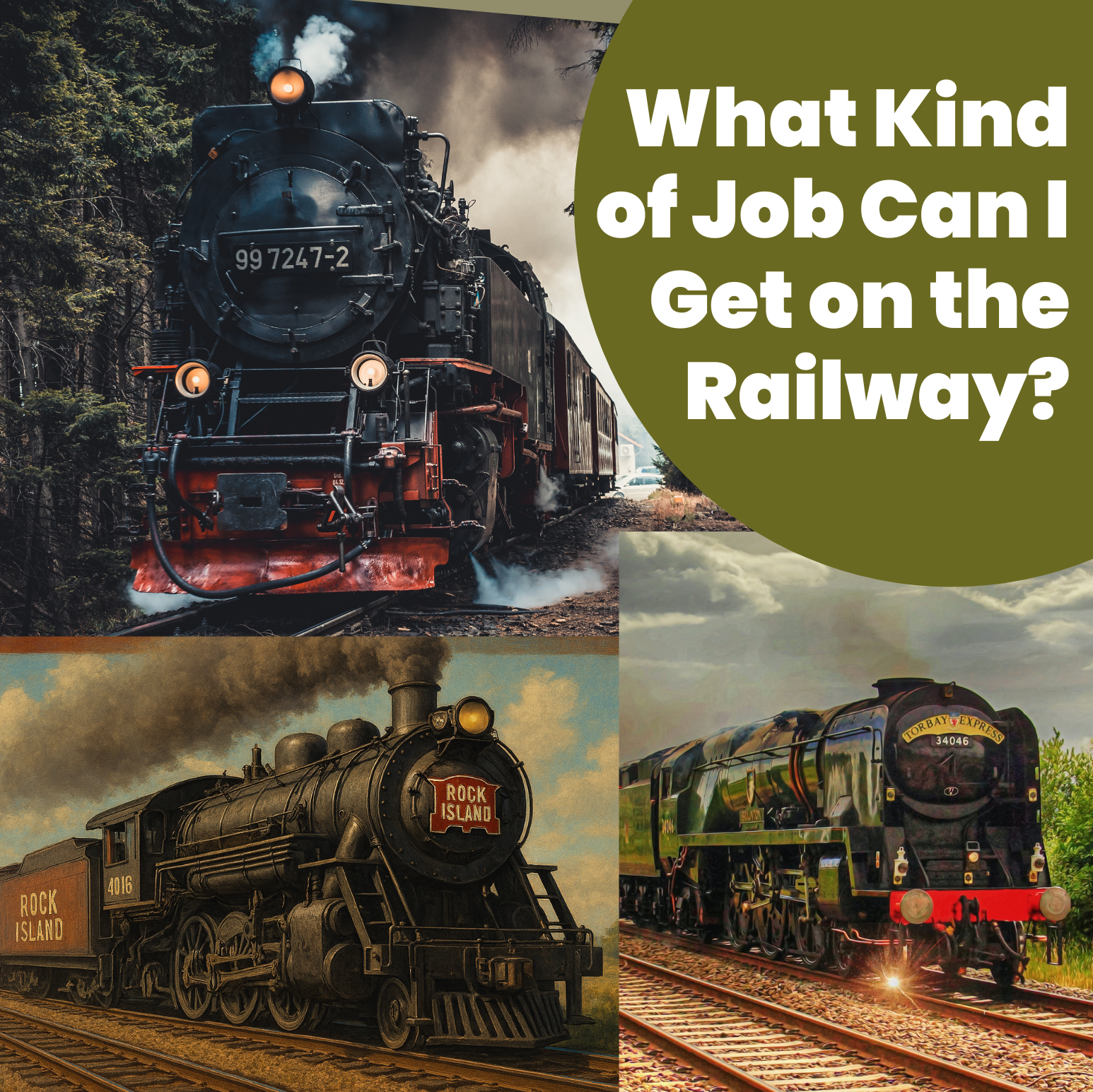Heavy Equipment Interesting Articles at HeavyEquipment.com
The Dirt Desk - Q&A
What Kind of Job Can I Get on the Railway?
Railways have been a cornerstone of transportation for over a century, and they continue to play a vital role in moving people and goods across the country. But beyond the trains themselves, the railway industry offers a wide range of career paths for those who are curious about working on the rails. Whether you’re drawn to hands-on work outdoors, the technical side of operations, or the business that keeps it all running, there’s likely a place for you in the railway world.
Train Crew Positions
If you’ve ever dreamed of being in the cab of a locomotive, train crew jobs might be your first stop. These include:
- Locomotive Engineers – The people who operate trains, ensuring they run safely and on schedule.
- Conductors – Responsible for managing train operations, paperwork, cargo, and communication between crew members and dispatchers.
- Yardmasters & Switch Operators – Coordinate train movement within rail yards, ensuring cars are placed on the right tracks for loading, unloading, or departure.
These positions are hands-on, fast-paced, and essential to keeping the railways moving.
Track and Infrastructure Roles
The trains can’t run without the track beneath them. Track and infrastructure crews are the backbone of railway safety and efficiency:
- Track Maintainers & Inspectors – Repair and inspect rail lines, switches, and crossings.
- Signal & Communication Technicians – Keep the signaling and communications systems running, which are critical for train safety.
- Bridge & Structure Workers – Maintain the bridges, tunnels, and crossings that railroads depend on.
These jobs are perfect for people who enjoy working outdoors, problem-solving, and ensuring the safety of the railway network.
Mechanical and Technical Careers
Railway equipment is massive and complex, and it takes skilled hands to keep it running smoothly:
- Rail Car Repairers – Inspect, maintain, and repair freight or passenger cars.
- Locomotive Mechanics & Electricians – Service the engines that power the trains.
- Heavy Equipment Operators – Use specialized machinery for track construction, repairs, or loading and unloading cargo.
This is a great fit for anyone with mechanical skills or an interest in working with powerful machines.
Office and Support Roles
Not all railway jobs are trackside. Railroads are also businesses that need planners, managers, and support staff:
- Dispatchers – Monitor train movements across the rail network, ensuring everything runs on schedule and avoiding conflicts on the tracks.
- Operations Managers – Oversee daily functions, coordinate crews, and manage logistics.
- Customer Service & Sales – Work with shippers, passengers, and communities to ensure the railway meets customer needs.
- Administrative Staff – Handle scheduling, finance, safety records, and compliance.
Modern Railway Careers
Today’s railways are embracing technology, opening up even more career opportunities:
- Telematics & Data Analysts – Track train performance, fuel use, and logistics using advanced monitoring systems.
- Environmental & Safety Specialists – Ensure compliance with regulations and promote sustainable operations.
- IT & Automation Experts – Develop and maintain the software and systems that keep modern railways running.
Getting Started
Railway companies often provide their own training programs, apprenticeships, or on-the-job learning. Some positions may require specialized certifications, while others just ask for a strong work ethic, willingness to work shifts, and a readiness to learn.
The railway industry is much more than locomotives and track—it’s a diverse field with opportunities for nearly every interest and skill set. Whether you want to work with your hands, manage operations, or push railroads into the future with new technology, there’s a railway career waiting for you.

